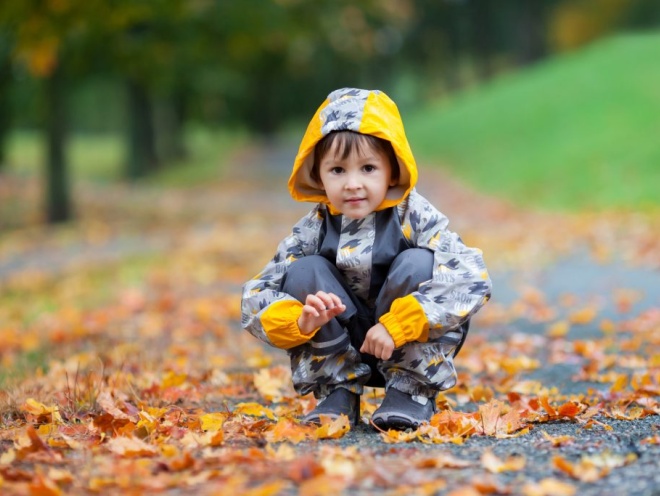When do you know your child's ready to start potty training? Well, you'll see the signs. Here we discuss the five common signs of potty training readiness.
You may be wondering when to start potty training?
As you’ve probably heard many times, every child develops at a different pace (ERIC, 2010). So it’s good to wait until your little one is showing you signs they’re ready to potty train rather than their age (NHS Choices, 2018). Focus on whether they are ready as an individual and resist that urge to compare them with other children of a similar age (Brazleton et al, 1999).
How do you know your child is ready for potty training?
Your child will need to be physically ready to control their bladder and bowels at the same time as wanting to be clean and dry. They will also need to be able to understand basic instructions about using the potty or toilet.
It can be hard to know when to start potty training. Keeping an eye out for the common signs of potty training readiness will give you a better idea of when to try it. Wait until your child is showing the following signs of readiness and you’ll find potty training easier, with less accidents.
Five common signs of potty training readiness:
1. Your child has dry nappies for at least an hour or two at a time.
2. They understand when they are having a wee and may tell you they’re doing one.
3. They recognise when they have a wet or dirty nappy and may pull at it, take it off or ask you to change it.
4. There may be visible signs your child needs to go to the toilet, like fidgeting or going somewhere quiet or hidden.
5. They know when they need to wee and may say so in advance. (NHS Choices, 2018)
Potty training is usually quicker if your child is already at the last stage – knowing when they need a wee – when they start potty training (NHS Choices, 2018). That plus waiting to get to the right place might make potty training very quick (NHS Choices, 2018).
You might find your child starts to take more of an interest when you, your partner or older brothers or sisters go to the toilet. If so, let them see what happens and talk them through the process (NHS Choices, 2018).
Make sure your little one always washes their hands after going to the toilet. It’s also good to teach girls from an early age how important wiping from front to back is.Learning to use the potty or toilet is a major milestone in your child’s growing up and it can take time (Institute of Health Visitors, 2014). It’s important to praise them for any successes.
It’ll happen, your child will have a potty training accident at some point. When it happens, stay calm, reassure them that these things can happen, and help get them clean and dry. Staying calm means your little one is less likely to worry next time they try to use the potty (Institute of Health Visitors, 2014).
Major physical or emotional upheavals can affect the success of potty training (Institute of Health Visiting, 2014). If you start potty training and things aren't going well, carry on with nappies for a while longer and try again in a few weeks' time (ERIC, 2010).
Some parents wait until the summer to begin training, as they’ll have fewer clothes to remove when their child has an accident (NHS Choices, 2018).
Warm weather and being outside also make accidents easier to clean up and clothes will dry more quickly (NHS Choices, 2018).
This page was last reviewed in March 2018
Further information
Our support line offers practical and emotional support with feeding your baby and general enquiries for parents, members and volunteers: 0300 330 0700.
You might find attending one of our NCT New Baby courses helpful as they give you the opportunity to explore different approaches to important parenting issues with a qualified group leader and other new parents in your area.
Make friends with other parents-to-be and new parents in your local area for support and friendship by seeing what NCT activities are happening nearby.
More potty training information is available from NHS Choices.
Brazleton T, Christopherson E, Frauman A, Gorski P, Poole J, Stadtler A, Wright C. (1999) Instruction, timeliness and medical influences affecting toilet training. Paediatrics. 103:1353-1358. Available from: http://pediatrics.aappublications.org/content/103/Supplement_3/1353 [Accessed 1st June 2018]
ERIC. (2010) Potty training. Education and resources for improving childhood continence. Available from: www.eric.org.uk [Accessed 1st June 2018]
Institute of Health Visiting. (2014) IHV parent tips. Available from: https://ihv.org.uk/wp-content/uploads/2015/10/PT_Toilet-Training_V5-upd… [Accessed 1st June 2018]
NHS Choices. (2015) How to potty train. Available from: https://www.nhs.uk/conditions/pregnancy-and-baby/potty-training-tips/ [Accessed 1st June 2018]
Further reading
American Academy of Pediatrics. (1999) Toilet training guidelines: Parents – the role of the parents in toilet training. Pediatrics. 103(6 Pt 2):1362-1363. Available from: http://pediatrics.aappublications.org/content/pediatrics/103/Supplement… [Accessed 1st June 2018]
Buckley S. (2002) Mothering, mindfulness and a baby’s bottom. An introduction to elimination communication. Mother. Issue 3. Available from: https://sarahbuckley.com/mothering-mindfulness-and-a-babys-bottom-an-in… [Accessed 1st June 2018]
Hatch A. (2017) What is baby-led potty training? Available from: http://amberhatch.com/what-is-baby-led-potty-training/ [Accessed 1st June 2018]





